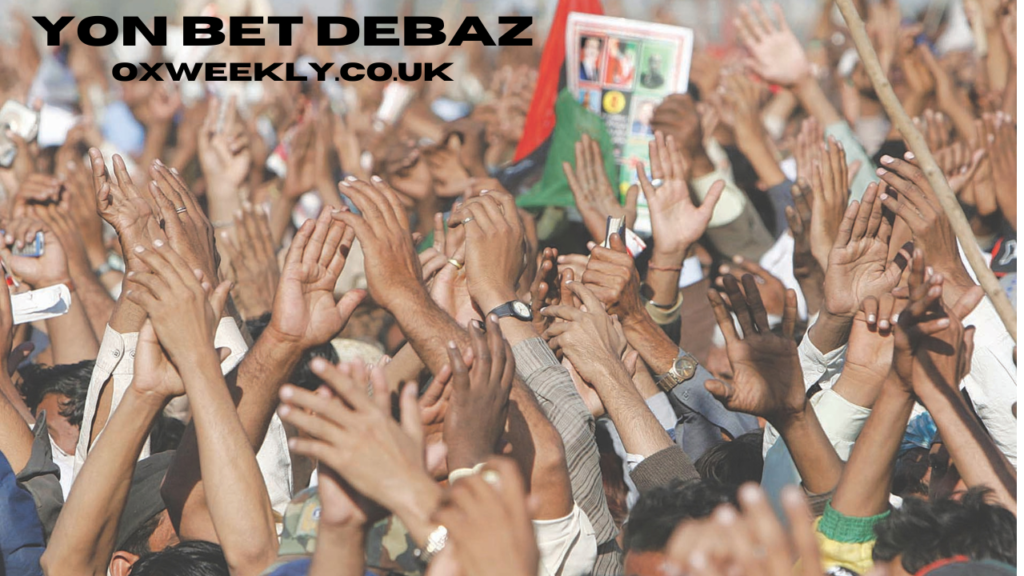on Bet Debaz
Introduction
Yon Bet Debaz is a phrase deeply rooted in cultural and linguistic contexts, carrying significant meaning and relevance. Whether used in casual conversation or more serious discussions, its impact remains profound. This article delves into the origins, interpretations, and broader implications of Yon Bet Debaz, exploring how it has shaped conversations and influenced perspectives over time.
Understanding the Meaning of Yon Bet Debaz

At its foundation, Yon Bet Debaz translates to a vigorous conversation, a dispute, or a verbal encounter when various opinions are conveyed. It is generally characterized by impassioned disputes, competing opinions, and occasionally, a war of wits. The statement conveys the essence of a discussion that is not only about winning an argument but rather about participating in meaningful conversation.
The term is widely used in various social settings, from political discussions to everyday disagreements, where individuals express their ideas and challenge each other’s opinions. While it can sometimes lead to heated exchanges, Yon Bet Debaz is ultimately a tool for intellectual engagement and learning.
The Cultural and Linguistic Origins of Yon Bet Debaz

The origins of Yon Bet Debaz are closely tied to the linguistic and cultural traditions of Haitian Creole. Language is an essential component of any culture, and in the case of Haitian Creole, phrases like Yon Bet Debaz carry deeper connotations that go beyond mere words.
Historically, debating and arguing have been integral parts of various cultures, and in Haiti, they serve as a way to express thoughts, challenge societal norms, and advocate for change. Whether in local gatherings, political arenas, or informal discussions among friends, Yon Bet Debaz has played a role in shaping opinions and fostering a culture of dialogue.
The Role of Yon Bet Debaz in Society

Yon Bet Debaz is not simply about arguments—it symbolizes a social activity that stimulates conversation and intellectual interchange. In many civilizations, arguing is a crucial instrument for democracy, problem-solving, and decision-making. Whether it is about politics, societal concerns, or even personal affairs, the notion of Yon Bet Debaz encourages individuals to express themselves freely and connect with diverse viewpoints.
In the political environment, arguments are vital for democratic processes. Political candidates typically participate in debates to showcase their proposals, confront their opponents, and persuade people of their views. Similarly, in daily life, Yon Bet Debaz empowers people to express their concerns, question authority, and fight for social justice.
Yon Bet Debaz in Traditional and Modern Contexts
In traditional settings, Yon Bet Debaz often took place in communal spaces where elders and respected figures led discussions on important matters. These debates were not just about proving one’s point but also about finding common ground and solutions that benefited the community.
In current circumstances, Yon Bet Debaz has found its home in different venues, including social media, television, and online forums. With the growth of digital communication, individuals engage in arguments more frequently than ever before. Social media platforms have become a battleground for ideas, where users actively dispute about politics, social concerns, entertainment, and more. While this has boosted involvement and awareness, it has also led to more heated conversations where emotions sometimes eclipse reasonable speech.
The Positive and Negative Aspects of Yon Bet Debaz
Like every type of conversation, Yon Bet Debaz has both positive and negative qualities. On the plus side, it develops critical thinking, allows for the interchange of ideas, and promotes constructive conversations. It encourages people to defend their opinions with logic and reason, ultimately contributing to personal growth and society advancement.
However, the negative side of Yon Bet Debaz comes when arguments get extremely hostile or insulting. When individuals focus entirely on winning an argument rather than comprehending diverse views, conversations can become poisonous. In certain circumstances, they lead to unneeded disputes, misunderstandings, and divides among groups.
How to Engage in a Constructive Yon Bet Debaz
For Yon Bet Debaz to be productive and meaningful, it is essential to follow certain principles:
- Respect Different Opinions: Understanding that people have different perspectives is crucial in any debate. Being open to opposing views fosters a more balanced discussion.
- Use Logic and Facts: A strong argument is based on facts, logic, and reasoning rather than personal attacks or emotional outbursts.
- Stay Calm and Composed: Heated arguments can escalate quickly. Keeping emotions in check ensures that discussions remain respectful and constructive.
- Listen Actively: A good debate involves not only speaking but also listening to understand the other side’s point of view.
- Seek Common Ground: While debates often highlight differences, finding areas of agreement can lead to better understanding and cooperation.
Conclusion
Yon Bet Debaz is more than simply an argument—it is a powerful tool of expression, conversation, and intellectual advancement. Whether in conventional settings or modern digital platforms, discussions play a crucial role in forming ideas, influencing views, and pushing change. While it is necessary to engage in arguments with enthusiasm, it is equally vital to do so with respect and an open mind.
By embracing the principles of respectful and constructive debate, Yon Bet Debaz can continue to serve as a valuable tool for learning, communication, and social progress. Understanding its meaning, origins, and impact helps us appreciate the art of discourse and the power of exchanging ideas.

































